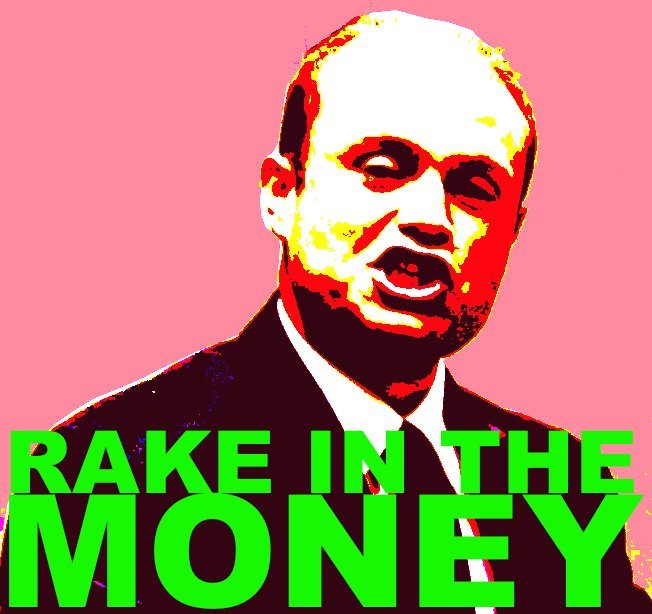GUEST POST/Raking in the money
By H. P. Baxxter
I was struck by a comment that Daphne Caruana Galizia made beneath the story of Joseph Muscat’s Freudian slip. Governing a country is not just about economics or making money.
How right she is. The sole aim of Maltese government has been reduced to raking in the money. But is it just Joseph Muscat who got us here? I think not.
It is hard to draw back and look at the broad political history of Malta. For a start, the country is tiny. Tiny countries, by definition, do not make history on a grand scale. They may feel the effect of history hitting them, some years after the wave has been set off elsewhere. But the key word is ‘elsewhere’.
History is just something that happened to Malta. It was at best a passive receiver.
Secondly, Malta has been a nation-state for just 50 years, and the growth of national consciousness began no longer than 120 years ago, if that. It was never Malta’s destiny to be an autonomous political entity. It happened by a series of accidents of history. Leased to a religious order in 1530, then taken over by Britain as a protectorate and coaling station. The British made the mistake of giving the Maltese the tools of the nation-state. The Maltese played around with the tools and thought they could take on the world.
So Maltese politicians never developed a sense of the higher function of politics. They never developed statesmanship. Eddie Fenech Adami is the exception that proves the rule.
The one constant that emerges is a preoccupation with money. Just after the First World War, it was the price of grain. That’s why the mob burned the flour mills on their way to Valletta on that infamous 7 June 1919. It was a deliberate political act that betrays the real reason for that piece of silliness. After the Second World War, it was money again. The primitive demands were wrapped in a lot of genteel talk about Dockyard workers’ wages, delivered in Mintoff’s try-hard Oxford drawl.
Independence, I will pass. It wasn’t fought for, but granted, and it would have been granted regardless. Those were the post-war years of decolonisation, and Malta was actually one of the last – 1964 compared to, say, 1947.
Post-independence came the Mintoffian collectivist disaster. It hangs like a millstone round the necks of our fawning, lily-livered academics and economists. No matter. It was kitchen-table economics applied to the national economy. Il-kaxxa ta’ Malta, they called it. Inrossu c-cintorini. Mintoff, a political genius? A shockingly stupid economist, more like. But then he wasn’t one to begin with; he was an architect. He pleaded with the British to extend their lease and postpone Il-Helsien. More money, you see. And when he didn’t succeed, he went to Muammar Gaddafi for the money and sold the people the canard that he had ‘kicked out the British’.
Post-1987 they started calling it the GDP. Eddie Fenech Adami is the greatest statesman of his generation because, to him, the GDP was the tool for a higher purpose, the means to an end. That purpose was the Westernisation of Malta. He understood it. Very few did. The rest thought it was about money.
Malta reached its peak in 2004. Since then, it has slid back down into non-Western savagery and non-European imbecility. Lawrence Gonzi took the ‘hub’ idea, sold to him by a bunch of well-connected charlatans, and ran with it. The GDP became the end in itself.
Institutions and agencies were turned into salesmen for Malta when they should been doing something else altogether. The function of embassies was no longer to report back with intelligence and analysis, but to sell Malta abroad. The function of the state’s environment agency was no longer to protect the environment, but to parcel out land for development.
EU funds were spent on short-term gains, like paying the salaries of waitresses in Gozo so that restaurant owners could make a few more euros and raise that island’s GDP, rather than on long-term benefits like clean energy from solar panels.
Joseph Muscat took all of this, and simply removed the rules and regulations. All snouts to the trough. Come one, come all. Let’s make money. Rake it in, yeah.
Simon Busuttil has his work cut out for him. He must bring politics back to its original purpose: how to organise this social unit we call the nation-state for the common good of its inhabitants. And the common good is not reducible to the GDP.
There is a beautiful word in the dictionary, which is ‘civilisation’. It is a Latin word adopted by non-Latin languages, and the concept goes right to the heart of Europeanness. Civilisation is about more than the GDP, and certainly not about money. The Gulf oligarchies are awash with money, but have they civilisation?
Civilisation is about things like rights and duties, protecting the weak and limiting the excesses of the strong. It is about wellbeing. It is about beauty.
A civilized European recognizes the beauty of a Grecian urn. Many Maltese would smash it to see if there’s any money inside.

